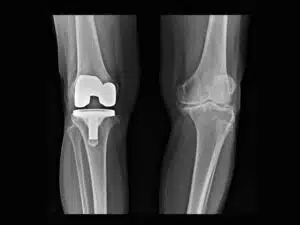Knee surgery can take you one step closer to less pain and better mobility. However, the journey to full recovery is only beginning after leaving the operating room. A most important part of the healing process after knee surgery is rehabilitation, and it is necessary for restoring knee strength and flexibility. In this article, we…
knee surgery near me
Minimally Invasive Knee Surgery: Benefits and Considerations
Sometimes, knee surgery is recommended by orthopedic doctors for improving knee pain in patients with arthritis. Knee surgery has come a long way, with advancements allowing for smaller incisions to be made and robotic-assisted technology for greater precision in implant placement. While minimally invasive surgery has a very high success and patient satisfaction rate, the…
Resuming Daily Activities After Knee Surgery: A Gradual Approach
Undergoing knee surgery is a major event requiring full commitment to your recovery. One of the biggest concerns about knee surgery is the recovery period. It is only natural to want to know when you can resume your daily activities. After all, returning to normal is a major consideration for knee surgery. Let’s talk more…
Types of Knee Surgeries: From Arthroscopy to Joint Replacement
There is knee pain that arises from overuse or lack of use, and then there’s knee pain that results from an underlying condition, such as disease or injury. The knee joint is a complex structure that bears a considerable amount of weight and undergoes repetitive stress daily, which is why there is a higher risk…
Knee Surgery for Athletes: Getting Back in the Game Safely
Knee injuries are among the most common injuries that can happen to athletes. Given that the knee is a weight-bearing joint that allows for a wide range of physical movements, strong and stable knees are critical for optimal athletic performance. When an athlete experiences a knee injury, the first question is always, “When can I…
How to Prepare for Arthroscopic Knee Surgery
Arthroscopic knee surgery involves the use of highly advanced techniques for repairing the inner structures of the knee that have sustained a severe injury. It can be used to diagnose and repair damaged ligaments and cartilage, fix fractures, or remove inflamed synovial tissue. The surgery has a high success rate in achieving the goals of…
Knee Replacement: A Step-by-Step Guide
A knee replacement surgery is one of the most commonly performed replacement procedures in the United States. Knee replacement is when your worn or damaged knee joint – partial or complete – is surgically removed and replaced with an artificial knee joint. Knee replacement is highly effective at relieving knee pain and improving mobility. It…
The Benefits of Knee Surgery-What You Need to Know
Knee problems, like pain, swelling, and reduced mobility, can interfere with your daily activities, and if not treated and managed on time, these lead to severe consequences. Minor knee problems respond well to nonsurgical treatments. But, surgery is recommended when all nonsurgical treatment options fail to treat and eliminate the symptoms of knee problems. Gradual…
Benefits of Knee Surgery
Even though scary, knee surgery can provide you with relief from a myriad of symptoms that interfere with your daily routine tasks and for which nonsurgical treatments are not enough. Many things can warrant knee surgery, including osteoarthritis of the knees, gradual wear and tear of the knee joint, knee disease, and trauma to the…
7 Common Injuries That Arthroscopic Knee Surgery Can Help With
Arthroscopic knee surgery is a minimally invasive procedure used to treat a variety of issues within the knee joint. The knee joint is composed of bone, soft tissue, and cartilage, and any one of these can develop problems. Traditionally, knee surgeries were performed as open surgeries, where large incisions had to be made, the pain…











